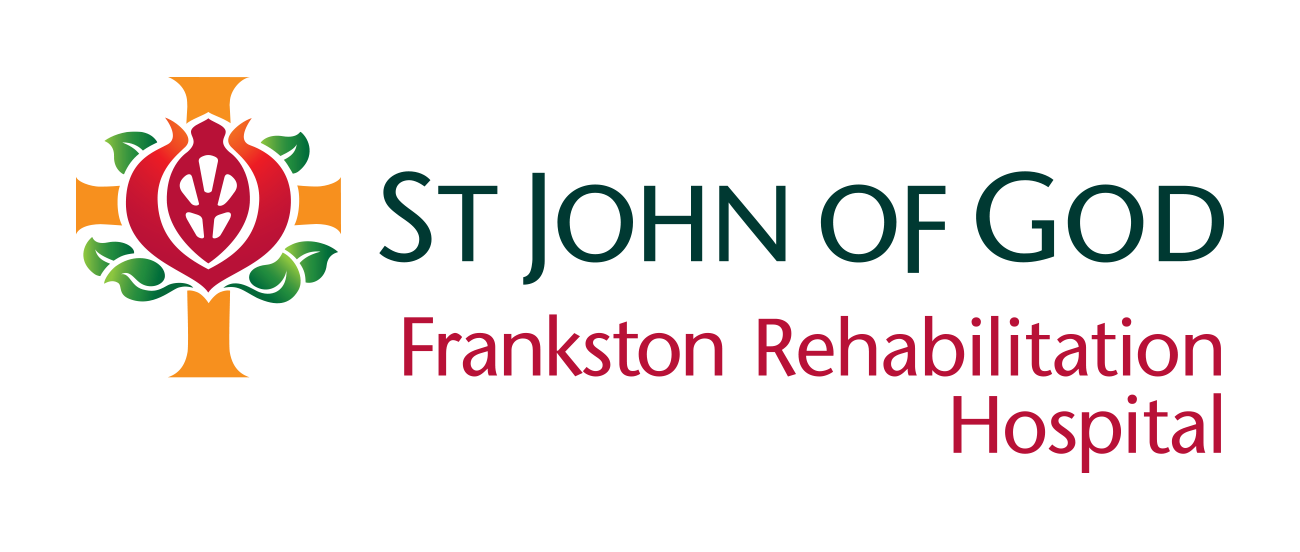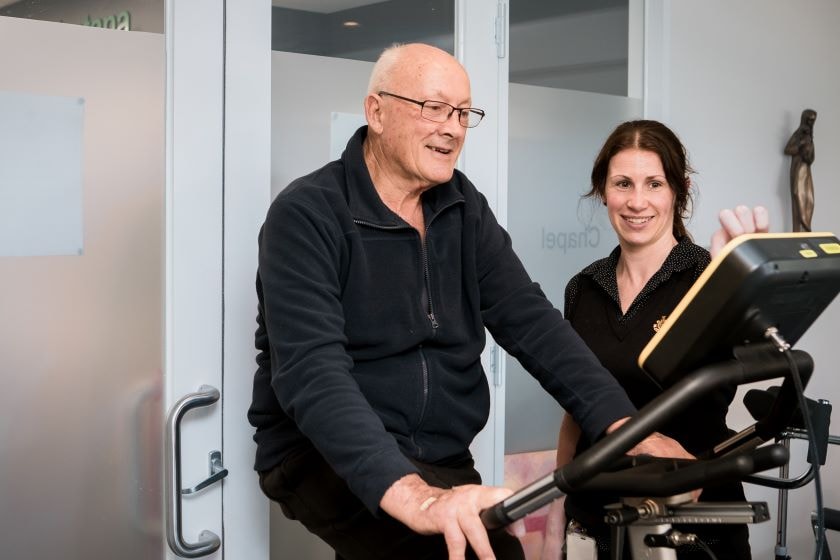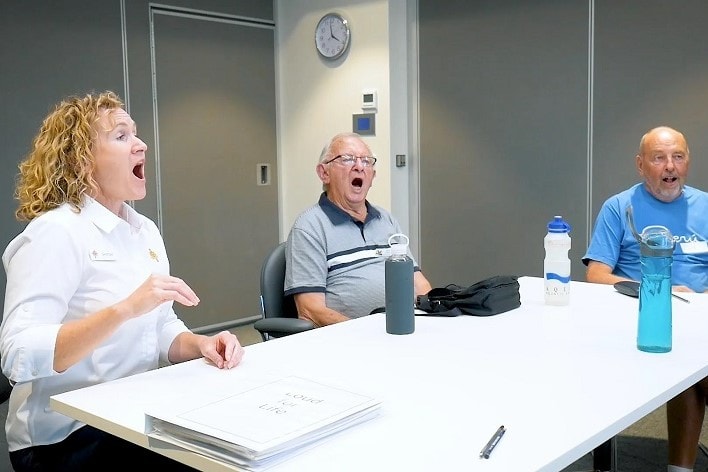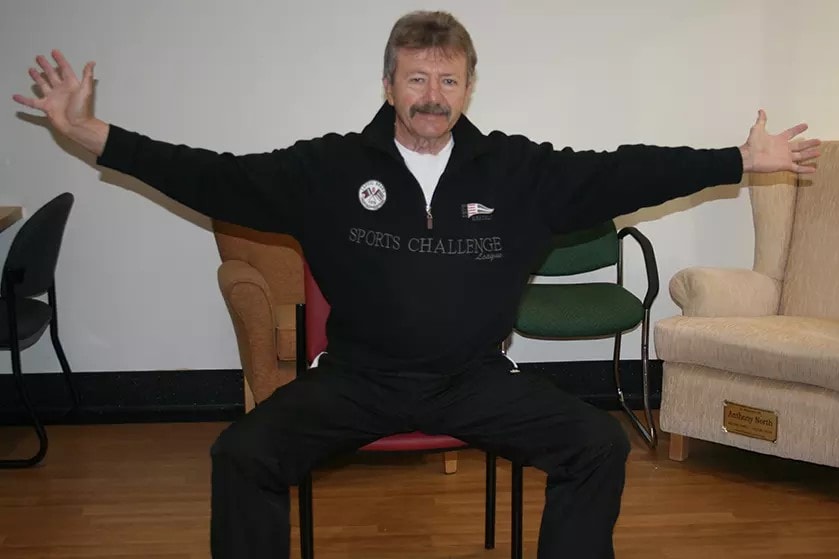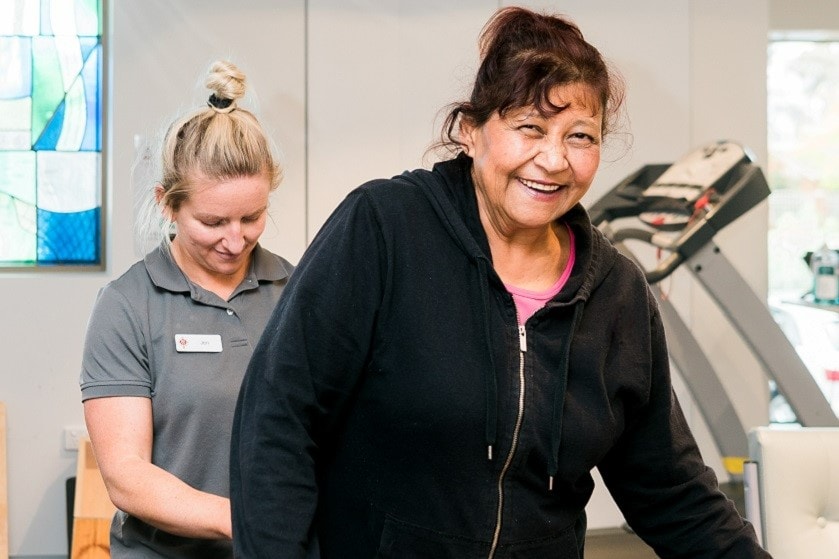- Our services
- Rehabilitation services
- Parkinson's service
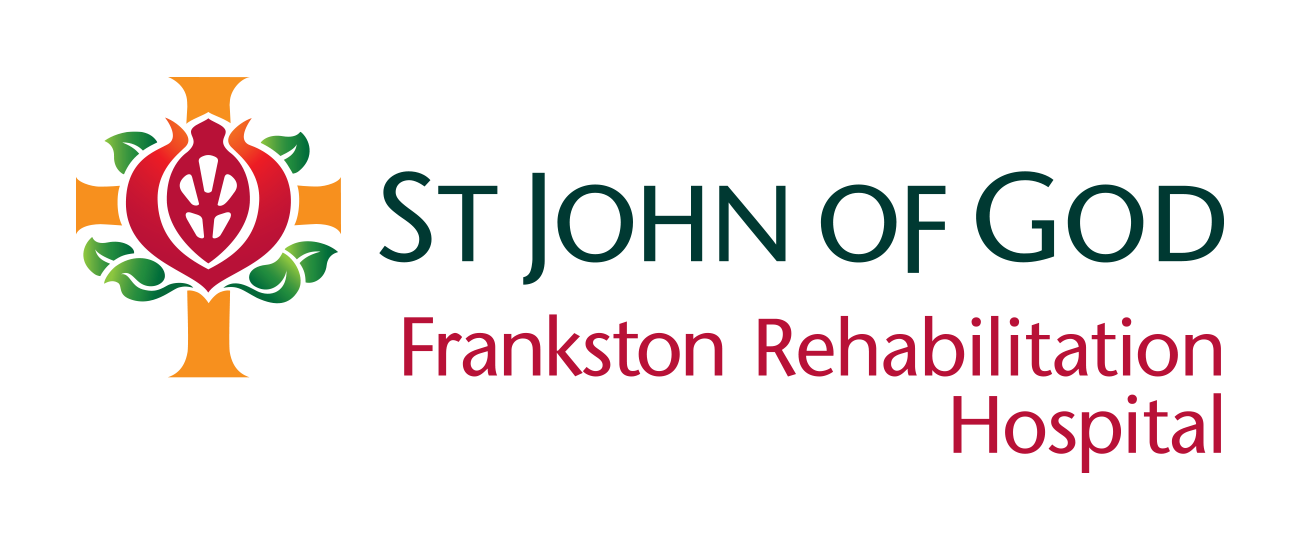 Our services
Our services
- Allied health
- Cardiac rehabilitation
- Chronic disease management
- Chronic pain management
- Diabetes education
- Exercise physiology
- Hydrotherapy
- Inpatient rehabilitation
- Neurological rehabilitation
- Nutrition and dietetics
- Occupational therapy
- Oncology rehabilitation
- Orthopaedic rehabilitation
- Outpatient programs
- Pain management
- Palliative care
- Parkinson's service
- Physiotherapy
- Pulmonary rehabilitation
- Reconditioning rehabilitation
- Speech pathology
- Stroke rehabilitation
- Tyromotion
Parkinson's service
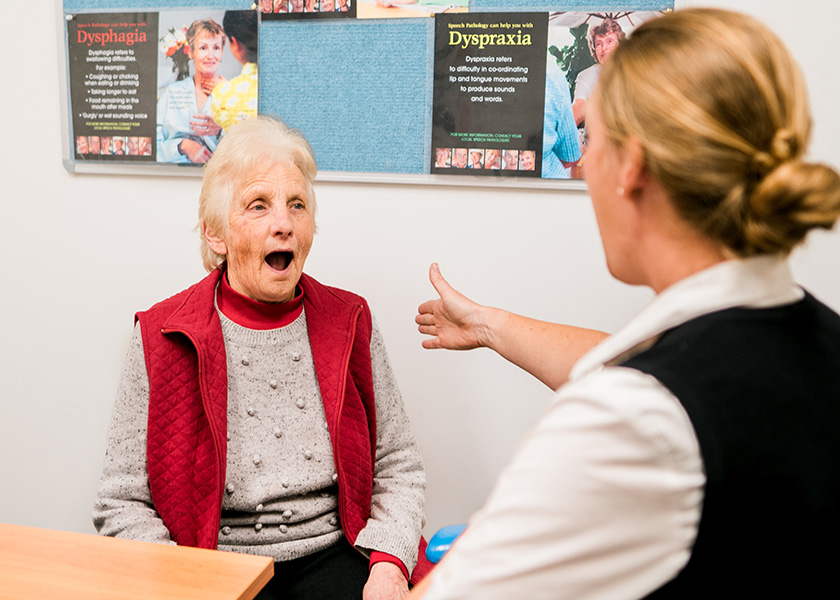
About Parkinson’s disease
Parkinson’s disease is a progressive neurodegenerative disease, which directly affects your motor skills and movement. However, Parkinson’s can affect more than just the physical aspects of your life and can also impact your thinking, memory, speech and basic day to day living.
Our specialist team are highly experienced in caring for people with the disease and work closely with you to manage your symptoms.
Parkinson’s symptoms can sometimes lead to:
- difficulty managing daily activities and routines
- difficulty walking places and moving around at home
- anxiety and depression.
Our aim
- Help you better manage your symptoms of Parkinson’s disease.
- Improve your quality of life.
- Help you maintain your independence and wellbeing.
- Educate you and your family on Parkinson’s and your best treatment options.
- Offer support tools to help you navigate your thoughts and feelings.
Parkinson's services pathways
St John of God Frankston Rehabilitation Hospital provides one of the most comprehensive Parkinson’s disease services in Melbourne.
We offer a variety of services and programs to meet the needs and lifestyles of people with Parkinson’s disease.
Our goal is to assist you in managing your everyday routines so that you may continue to live independently and accomplish the things you enjoy.
Each of our pathways are led by our specialist team, supported by their expertise and understanding of Parkinson’s disease and other movement disorders.
A six-week program consisting of exercise, voice therapy, activity practise and formal education from a wide range of health professionals, to assist with the management of Parkinson’s disease. Following completion of the program, patients may choose to participate in Proactive Parkinson’s for weekly longer-term maintenance and management of Parkinson’s side-effects.
A weekly maintenance program for Parkinson’s patients, addressing the ongoing management of speech and movement issues. Participation is subject to the completion of the Parkinson’s Program and will allow patients to manage their symptoms and optimise their quality of life for the long term.
LSVT® – Lee Silverman Voice Treatment, is a popular program to support patients with Parkinson’s disease. LSVT® is an intensive, evidence based program.
LSVT LOUD® provides patients with skills and tools to improve and manage the speech-related side effects of Parkinson’s disease. The program retrains the brain to be more aware of voice volume and assists with communication issues. These vocal strategies are evidenced-based and effectively strengthen the voice box and speech system.
A maintenance group therapy program, supporting the skills and lessons learnt in the foundation program LSVT LOUD®, addressing ongoing speech issues for the longer-term.
The LSVT BIG® intensive amplitude-based exercise program is designed to help people with Parkinson’s disease improve their motor function including:
- Walking faster with bigger steps
- Improved balance
- Increased trunk flexibility
LSVT BIG® retrains the brain so that movements become bigger to assist with everyday activities. The evidenced-based program helps train fine and gross motor skills to increase mobility, balance and posture.
A maintenance group therapy program, supporting the skills and lessons learnt in the foundation program LSVT BIG®, to assist with any motor skill issues and movement concerns caused by Parkinson’s disease.
Read more about our Parkinson’s programs, our highly qualified team and our patients:
Other Parkinson’s related rehabilitation
Physicians can develop the appropriate measures and medication plans that are specific to your own, individual Parkinson’s journey.
Heated pool exercises to help reduce and improve your Parkinson’s symptoms.
A workshop to assist with vocal exercises and communication issues through music and song.
Activates your fine motor skills and can help you regain control over your movement, as well as promoting your emotional and mental wellbeing.
Teaches you different ways to make it easier for you to communicate with others and to better understand when they communicate with you.
Support services
Our Pastoral Services team are available to support you during your inpatient stay and provide counselling, spiritual and emotional guidance, and comprehensive bereavement support.
If you require further emotional or mental health support, St John of God Langmore Centre is located in Berwick and offers specialist inpatient and outpatient care.
Taking the next steps
A referral from a GP or medical specialist is required for admission as an inpatient or to the outpatient programs. However, specialist allied health appointments are also available without the need for a referral through our Active Health and Wellbeing Centre.
Private health insurance is required for admissions. TAC, WorkCover and DVA approved claims are accepted and self-funding options also available.
Contact us
For all enquiries please call 03 9788 3333.
Referrals
Patients may be referred directly to us using our referral form:
Our treatment and services
At St John of God Frankston Rehabilitation Hospital you are cared for by our multi-disciplinary team, including neurology specialists, rehabilitation specialists, physiotherapists, occupational therapists, speech pathologists, psychologists, pastoral practitioners and specialised movement disorder nurses. You’ll receive professional and friendly support in our modern spacious facilities.
You may be interested in
